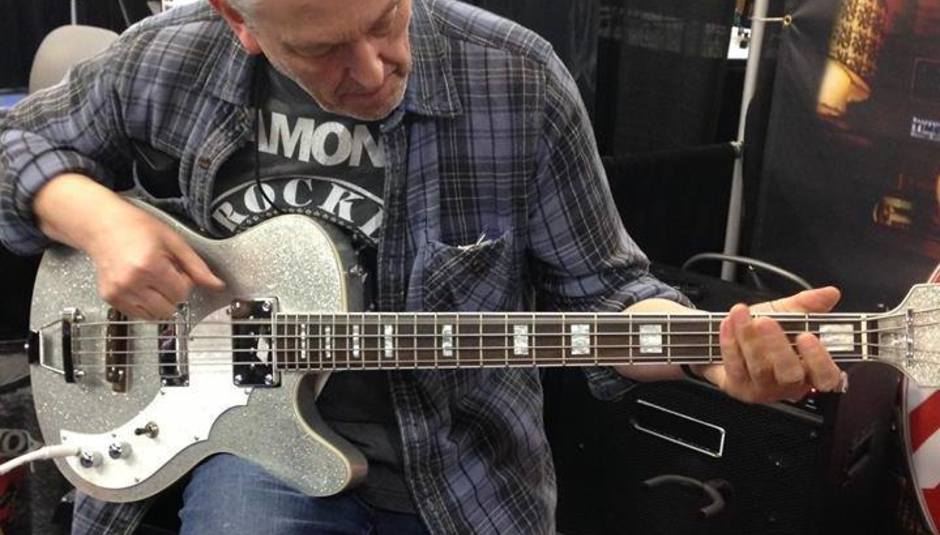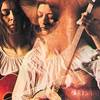Between 1979 and 1981, The Specials were arguably the biggest band in the land. Dominating both the singles and albums charts along with countless sold out shows and television appearances, their name became synonymous with the 2 Tone movement, itself christened after the name of the label set up by one of the band's founder members, keyboard player Jerry Dammers.
Nevertheless, after just two albums and seven singles, three of the band's key members (vocalists Terry Hall and Neville Staples along with guitarist Lynval Golding) left to form the short-lived Fun Boy Three. Although the remaining members carried on as The Special AKA for the next couple of years, the band never equalled those former glories, going their separate ways in 1984.
Twenty-four years later, having partially reunited a decade beforehand, the band reformed without Dammers to play their first live shows since 1981. Fast forward to the present and they're still going strong, albeit minus two more members from the definitive line-up of 1979-81 (Staples and guitarist Roddy Radiation having both left over the last year and a bit).
This evening they'll headline Nottingham's Splendour, their only festival show of 2015. Beforehand, DiS will sit down for a chat with bass player Horace Panter, another of the band's founder members. Also a keen and well-respected figurative artist, Panter pulls no punches when discussing the band's halcyon era, split, reunion, former members and current climate of the music industry.
DiS: You're headlining Splendour later this evening, which is your only confirmed UK festival date of the year. What made you choose this particular event?
Horace Panter: We wanted to keep a really low profile this year. We're only playing six shows. Three of those were in South America then we played in Tynemouth last Saturday and Kew Gardens on the Sunday. So this was a nice one to finish off on. For me it's ideal because I still live in Coventry which is just down the road. I came here in my car today.
DiS: What's Coventry like from a cultural and artistic point of view these days?
Horace Panter: It's probably a lot more vibrant than many people realise. There's quite a lot happening musically, especially in the ska scene. I suppose with the history attached to the city through 2 Tone and bands like us it's inevitable, but also great to see. Then just up the road there's Nuneaton, which is a bastion of great heavy metal.
DiS: With the Conservatives back in power, the rise of UKIP and even a so-called Labour party that swings more to the right than the left, your music and particularly a lot of the lyrics seem as relevant today as they did when first released thirty-five years ago.
Horace Panter: I don't know. I always ask where are the new Specials? Where is the next band that can take the same message we had and give it to the people? It doesn't seem as if there is one. So here we are. It's strange because I think justice is timeless. Racism still exists, perhaps even more so. And then you look at what's happening in the Middle East and America as well. These songs still have relevance which I suppose is testimony to the songwriting. In one way I guess that's a good thing because it means we still have a career, but in reality, can't someone do something about it please? It's a pyrrhic victory.
DiS: When the band reformed back in 2008, founder member Jerry Dammers was absent. Did that change the dynamic within the band?
Horace Panter: I have very fond memories of Jerry. If it wasn't for him I wouldn't be here. I guess it boils down to people having different personalities, the same as in any relationship. Sometimes it works, sometimes it doesn't. We originally wanted to do something to commemorate twenty-five years but that never happened. I qualified as a school teacher in 1993 - I eventually got the real job my parents always wanted me to get - and I honestly thought I would retire as a school teacher. I wrote a book about my time in The Specials. At that point I thought it was over and done with. I never saw myself going back to that again. It was Lynval (Golding) who initiated the reunion. We got Terry Hall's manager on board early on so that took care of the business side and everybody seemed to be in the right place at the right time. We knew from the groundswell of fans that the demand for the music was still there. But I still honestly believed we'd just do the one tour then I'd go back to being a school teacher. I never expected it to have the longevity it has. I think we're doing it a lot more sensibly now than we did back in '79 and '80. We'd be writing and recording while we were on tour and I think we eventually just ground ourselves into pulp. Whereas we're a lot more adult about things now. When we did that first tour in 2009 it felt like we'd never been away even though we split in 1981. That first gig in Newcastle was one of the scariest shows I've ever played in my life but the music was still there. I remember looking down from the stage and seeing the hardcore of the hardcore who'd bought tickets as soon as they went on sale and thinking either this is going to be amazing or we're gonna die on our arses. But as it turned out, the show was utterly fantastic. Probably one of the best we've ever played.
DiS: I saw one of the Nottingham shows on that tour at Rock City and it was probably the busiest, and certainly sweatiest I've ever been in that venue.
Horace Panter: Rock City can be quite claustrophobic at the best times. I think we played two consecutive nights in Nottingham on that tour and I remember them both being the closest to how our shows used to be back in 1979. Fortunately, there's a lot more emphasis on health and safety now and the equipment is much better. Back then, our shows were fraught with stage invasions that would occasionally spill over into violence. It was a very difficult time.
DiS: Are there any songs in your back catalogue which you're reluctant to play now? And on the flipside, are there any songs which have been given a new lease of life by the reunion?
Horace Panter: I don't think we ever did 'Ghost Town' properly first time around. It was recorded very much towards the end of our career so didn't get played that often. Whereas I think we do it spectacularly well now. Same with 'International Jet Set'. I guess we're thirty-five years better musicians than we were back then, but I'd like to think we still play with the same level of intensity. I'd like to think I do anyway. Whenever I strap a bass guitar on I become twenty-five again. And when I still play 'It Doesn't Make It Alright' I still mean it as much as I did back in 1979.
DiS: When I listen back to your second album More Specials it sounds as if there's a common theme running through it. Was it written as a concept album?
Horace Panter: Roddy (Radiation) always said we went from With The Beatles to Sgt. Pepper's... without doing Rubber Soul, which I thought was a very pertinent comment. But that was how Jerry used to work. He'd often say we've done that, now let's do something else. And other people would say, hey we've got this great thing going on here, why are we doing something different? That was probably the beginning of the fracturing of the band.
DiS: Were there plans to release a third record with that line-up?
Horace Panter: It was a triumph of will to get everybody in the same place at the same time to record 'Ghost Town' to be honest. The cracks were visible round about then. I think Terry, Neville and Lynval had already started making plans to do their own thing by this point.
DiS: In that different people wanted different things for the band?
Horace Panter: I think we'd just toured ourselves into the ground by that point. We worked so hard from the outset. A lot of the songs off the first album we'd already been playing live for a long time before they were recorded. And then the recording process only took place in between touring. We spent the first half of 1980 on tour - I think we had one day off the whole time? - and then when we came back the record company started badgering us for a new album in six weeks time. It was exhausting, and in the end you just start hating someone because they're putting their socks on in a morning. I often wonder what would have happened if we'd have said give us three months rather than six weeks but then the industry doesn't work like that. I guess that's one positive with the present. The industry doesn't have the same level of control over artists as it did back then.
DiS: One characteristic of The Specials - aside from being great songwriters, musicians and performers - was that each member was a recognisable personality in their own right. Was there ever a point where it felt some individuals received more attention than others?
Horace Panter: Maybe, but I can live with it. I'm just the bass player that stands at the back looking miserable!
DiS: Will there be anything to commemorate More Specials turning thirty-five years old in October?
Horace Panter: We are talking about but then we were also talking about doing something for the 30th anniversary five years ago. We'll see what happens when the time is right. Our back catalogue is our meal ticket but in some ways it's a bit of a millstone around our necks as well. We're a hard act to follow, so we've got to be really careful in terms of releasing new stuff.
DiS: Have there been any plans to record and release new material since the band reformed?
Horace Panter: Again, it's something we've talked about but I wouldn't like to confirm or deny these allegations!
DiS: Are there any bands you're particularly excited by at the moment?
Horace Panter: We had Sleaford Mods on tour with us who I think are the most exciting thing to happen in music for a long, long time. When they opened for us it reminded me of being back in 1978 when us and Suicide were opening for The Clash. For example, in Glasgow the audience started booing at the beginning of their set but by the end they were applauding. I like it when bands come along and shake things up. Let's not get complacent. They've gone on to great things, so I'm very pleased that we helped them there.
DiS: Do you think a record label like 2 Tone could make the same impact in the current climate as it did back in 1979?
Horace Panter: Could any independent label make an impact nowadays? The whole way music is consumed is totally different. Back in 1979 we went on tour to promote a record and we released a record to promote the tour. I suppose we were very lucky to capitalise on selling a lot of records back then which has enabled us to continue playing shows in 2015.
DiS: And I guess the same question could be levelled at The Specials too. Could a new band make the same impact in the current climate?
Horace Panter: That's a really difficult question. If we were a new band I'd be worried. I'd hate to be eighteen again and writing songs for the first time. I honestly wouldn't know what to do. I consider ourselves to be in a very lucky position. We came through at the right time.
DiS: So what advice would you give to a new band just starting out?
Horace Panter: Be true to yourselves. Don't write something just because you think that's what the industry might like.
For more information on Horace Panter visit his official website.
For more information on The Specials visit their official web page.






















